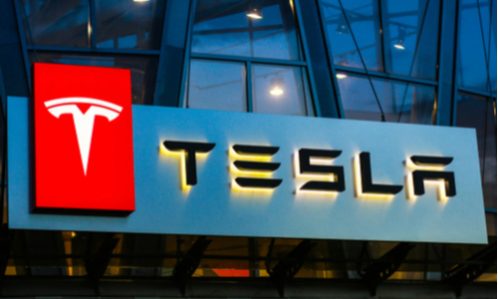
A U.S. judge has revived a class action lawsuit against Tesla Inc., allowing vehicle owners to pursue claims that the company has a monopoly on markets for repairs and parts. This decision breathes new life into a lawsuit previously dismissed last November.
U.S. District Judge Trina Thompson in San Francisco ruled on Monday that Tesla owners could proceed with their case, attempting to prove that Tesla coerced them into paying exorbitant prices and enduring long waits for vehicle repairs under the threat of losing warranty coverage. The owners argue that this alleged coercion violates both federal and California antitrust laws.
Thompson cited evidence suggesting Tesla’s control over the repairs market. Specifically, she pointed to Tesla’s alleged failure to open a sufficient number of authorized service centers and its design of vehicles that necessitate diagnostic and software updates exclusively available from Tesla. Furthermore, she highlighted evidence of a parts monopoly, including Tesla’s restrictions on original equipment manufacturers, limiting their sales to entities other than Tesla. Additionally, Tesla allegedly only sold parts to consumers on a limited basis.
Read more: EU Investigates Unfair Subsidies for Tesla, BMW and Renault
The judge also found potential evidence of illegal “tying” practices, wherein Tesla’s control over various markets allegedly forced customers into unwanted purchases.
Tesla and its legal team did not immediately respond to requests for comment on Tuesday. They have previously argued that the lawsuit was based on an “illogical theory,” claiming that Tesla would not deliberately degrade its repairs and parts services as it would harm its more lucrative vehicle sales and leasing business.
Matt Ruan, an attorney representing the plaintiff owners, expressed satisfaction with the court’s decision, describing it as well-reasoned and thoughtful. He stated that they look forward to the next phase of the case.
This lawsuit consolidates five separate complaints from vehicle owners who have paid for Tesla repairs and parts since March 2019. The plaintiffs allege that Tesla, headquartered in Austin, Texas, differs from its competitors by insisting on handling all servicing and parts needs internally, rather than allowing owners to use independent repair shops and third-party parts.
Source: CA Finance Yahoo
Featured News
Big Tech Braces for Potential Changes Under a Second Trump Presidency
Nov 6, 2024 by
CPI
Trump’s Potential Shift in US Antitrust Policy Raises Questions for Big Tech and Mergers
Nov 6, 2024 by
CPI
EU Set to Fine Apple in First Major Enforcement of Digital Markets Act
Nov 5, 2024 by
CPI
Six Indicted in Federal Bid-Rigging Schemes Involving Government IT Contracts
Nov 5, 2024 by
CPI
Ireland Secures First €3 Billion Apple Tax Payment, Boosting Exchequer Funds
Nov 5, 2024 by
CPI
Antitrust Mix by CPI
Antitrust Chronicle® – Remedies Revisited
Oct 30, 2024 by
CPI
Fixing the Fix: Updating Policy on Merger Remedies
Oct 30, 2024 by
CPI
Methodology Matters: The 2017 FTC Remedies Study
Oct 30, 2024 by
CPI
U.S. v. AT&T: Five Lessons for Vertical Merger Enforcement
Oct 30, 2024 by
CPI
The Search for Antitrust Remedies in Tech Leads Beyond Antitrust
Oct 30, 2024 by
CPI